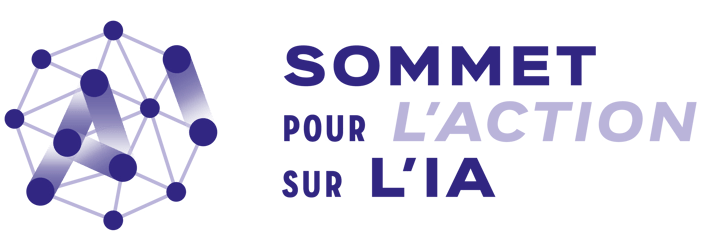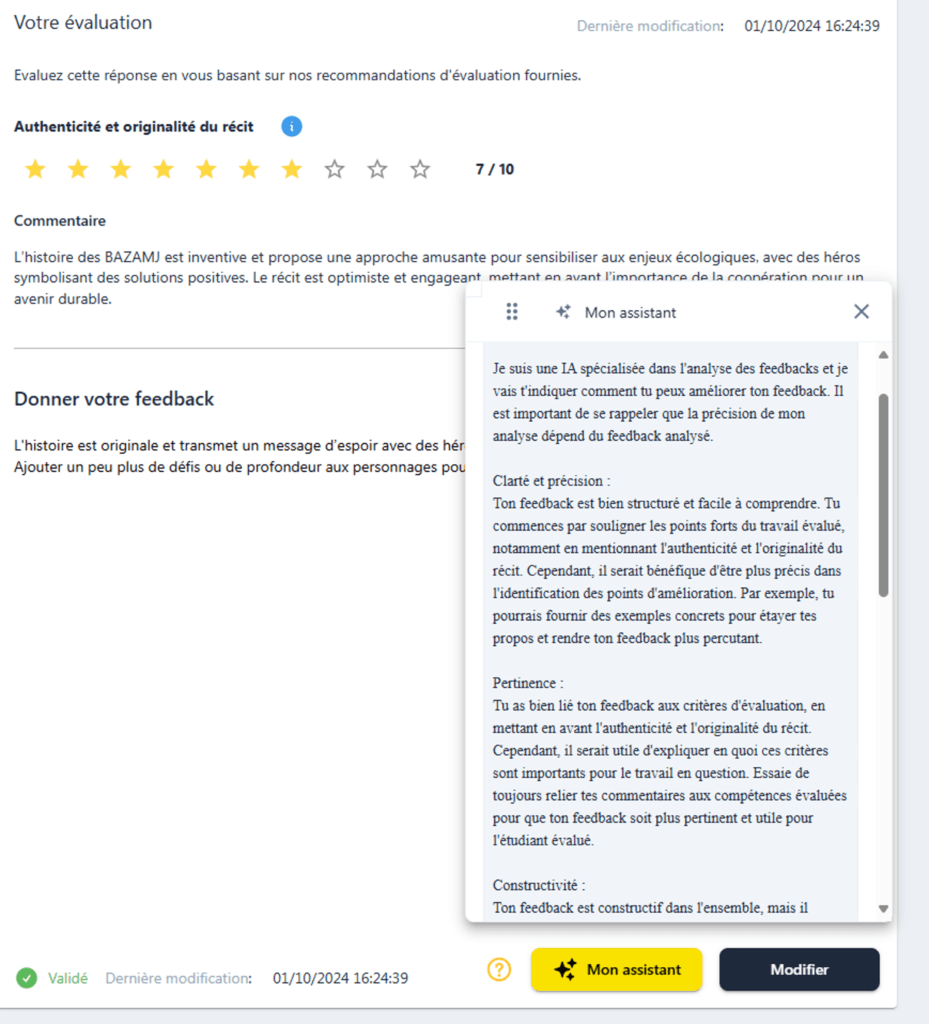En février 2025, Paris a accueilli un événement historique : le sommet international pour l’action sur l’intelligence artificielle (IA). Ce sommet a rassemblé des leaders mondiaux, des experts en IA, des chercheurs et des représentants de la société civile pour discuter des enjeux et des opportunités liés à cette technologie en pleine expansion. Pour les ingénieurs pédagogiques et les enseignants, ce sommet représente une opportunité unique de repenser les pratiques éducatives et de formation à l’aune des avancées de l’IA.
Le sommet, qui s’est tenu les 10 et 11 février 2025 au Grand Palais, avait pour objectif de définir des standards internationaux pour une IA durable, éthique et inclusive. Parmi les priorités figuraient :
L’accessibilité à une IA indépendante et fiable : Un enjeu crucial pour les éducateurs, qui pourraient bénéficier d’outils d’IA pour améliorer l’apprentissage et l’évaluation.
Le développement d’IA frugales et respectueuses de l’environnement : Une préoccupation croissante dans les institutions éducatives, soucieuses de réduire leur empreinte carbone.
Une gouvernance mondiale de l’IA : Pour garantir que les technologies éducatives soient utilisées de manière éthique et équitable.
Ces objectifs résonnent fortement avec les défis auxquels sont confrontés les ingénieurs pédagogiques et les enseignants, notamment en matière de personnalisation des apprentissages, d’évaluation formative et de gestion des données éducatives.

Le sommet a mis en lumière des initiatives comme celle de ChallengeMe, qui intègre l’IA pour transformer les pratiques éducatives. Voici comment ces innovations s’alignent sur les discussions du sommet :
Amélioration de l’évaluation par les pairs : ChallengeMe utilise l’IA pour générer des feedbacks constructifs et pertinents, aidant les enseignants à analyser les travaux des étudiants avec plus de précision. Cette approche reflète les discussions du sommet sur l’importance d’une IA éthique pour soutenir les processus éducatifs.
Personnalisation des apprentissages : Grâce à l’IA, ChallengeMe propose un soutien individualisé aux étudiants, renforçant leur autonomie et leur engagement. Cette idée de personnalisation a été largement discutée lors du sommet, avec un accent sur la nécessité de respecter les besoins individuels tout en favorisant une collaboration globale.
Optimisation du temps des enseignants : En automatisant certaines tâches répétitives, comme la correction et l’analyse des données, l’IA permet aux enseignants de se concentrer sur des activités à plus forte valeur ajoutée, comme l’accompagnement personnalisé des étudiants.
Une innovation clé de ChallengeMe : la plateforme fonctionne désormais sous forme d’API ouverte, permettant une intégration fluide avec des modèles d’IA comme Mistral, Aristote ou tout autre IA pertinente dans le contexte scolaire. Cette flexibilité permet aux établissements de choisir les outils les plus adaptés à leurs besoins tout en garantissant une IA respectueuse des données. En effet, ChallengeMe utilise une IA contextualisée, fonctionnant avec des données anonymisées qui ne servent en aucun cas à l’apprentissage des modèles, préservant ainsi la confidentialité et la sécurité des utilisateurs.
L’un des moments forts du sommet a été l’annonce d’un investissement massif de plusieurs milliards d’euros par la France pour développer des infrastructures dédiées à l’IA. Ces fonds pourraient avoir un impact significatif sur le secteur éducatif, en permettant :
Le développement de plateformes d’apprentissage intelligentes capables de s’adapter aux besoins spécifiques de chaque apprenant.
La création de ressources pédagogiques enrichies par l’IA, comme des simulateurs interactifs ou des tuteurs virtuels.
La formation des enseignants aux outils d’IA, pour qu’ils puissent exploiter pleinement ces technologies dans leurs pratiques.
Le sommet a également abouti à la signature d’une déclaration internationale par 58 pays, appelant à une IA ouverte, inclusive et éthique. Pour les éducateurs, cette déclaration représente une garantie que les technologies d’IA utilisées dans les salles de classe respecteront les droits fondamentaux des étudiants et éviteront les biais discriminatoires.
Cependant, l’absence des États-Unis et de la Grande-Bretagne parmi les signataires souligne les divergences persistantes sur la régulation de l’IA. Cela pourrait poser des défis pour les institutions éducatives internationales, qui devront naviguer entre des cadres réglementaires différents.
Le sommet a également mis en lumière plusieurs défis spécifiques au secteur éducatif :
Fiabilité de l’information : Avec l’essor des outils génératifs comme ChatGPT, il est essentiel de former les étudiants à évaluer la crédibilité des informations produites par l’IA.
Protection des données : Les ingénieurs pédagogiques devront veiller à ce que les outils d’IA utilisés dans les établissements scolaires respectent scrupuleusement les réglementations sur la protection des données, comme le RGPD.
Accessibilité : L’IA doit être conçue pour être inclusive, en tenant compte des besoins des étudiants en situation de handicap ou issus de milieux défavorisés.

Le sommet international pour l’action sur l’IA a marqué un tournant dans la manière dont nous envisageons l’avenir de l’éducation. En promouvant une IA éthique, inclusive et durable, cet événement ouvre la voie à de nouvelles opportunités pour les ingénieurs pédagogiques et les enseignants.
Des initiatives comme celle de ChallengeMe montrent que l’IA peut déjà transformer les pratiques éducatives, en améliorant l’évaluation, en personnalisant les apprentissages et en optimisant le temps des enseignants. Avec les investissements annoncés et les engagements internationaux pris lors du sommet, la France se positionne comme un leader dans ce domaine, offrant un modèle pour une éducation augmentée par l’IA.
La vision de ChallengeMe est claire : l’IA est un assistant pour augmenter la qualité des activités pédagogiques, permettre aux étudiants de développer des compétences essentielles et faire gagner du temps aux enseignants. En combinant innovation technologique et respect des données, ChallengeMe incarne les principes d’une IA au service de l’éducation.
Pour les éducateurs, le message est clair : l’IA n’est pas seulement une technologie à intégrer, mais une opportunité pour repenser entièrement la manière dont nous enseignons et apprenons. Le futur de l’éducation est déjà là – à nous de le saisir.